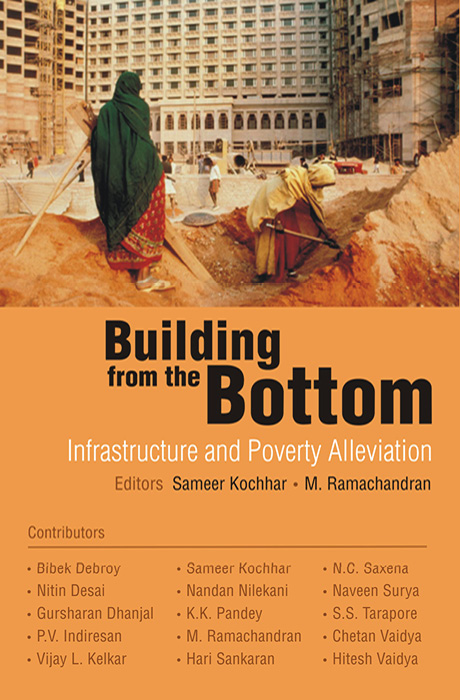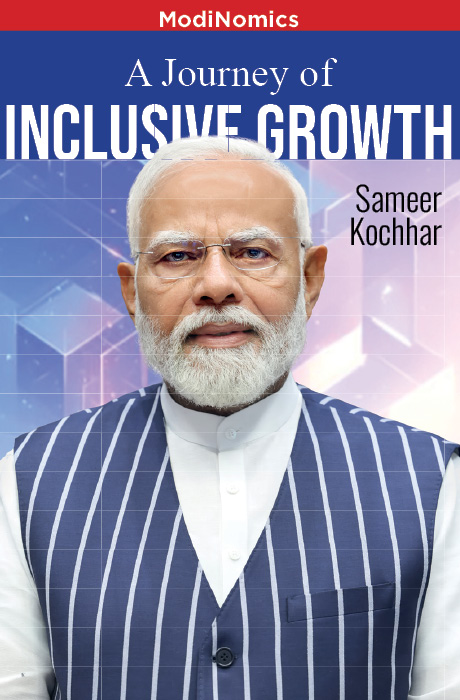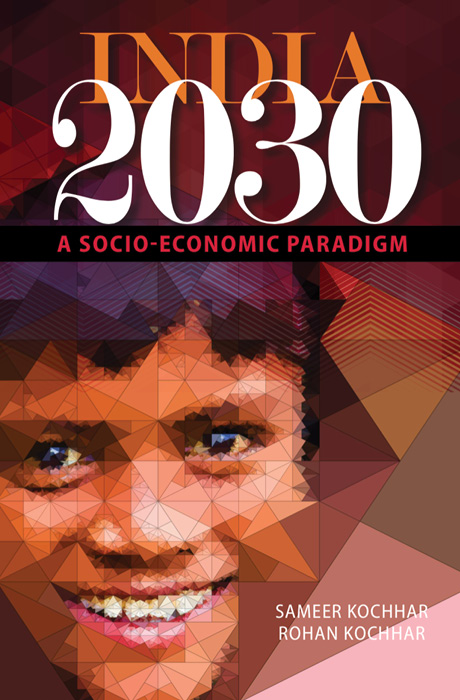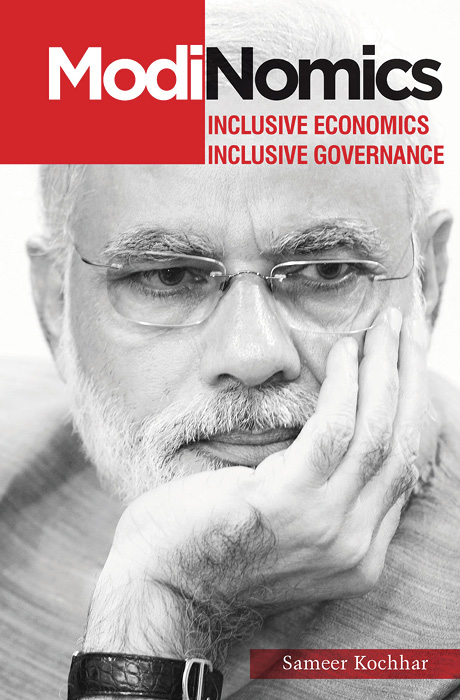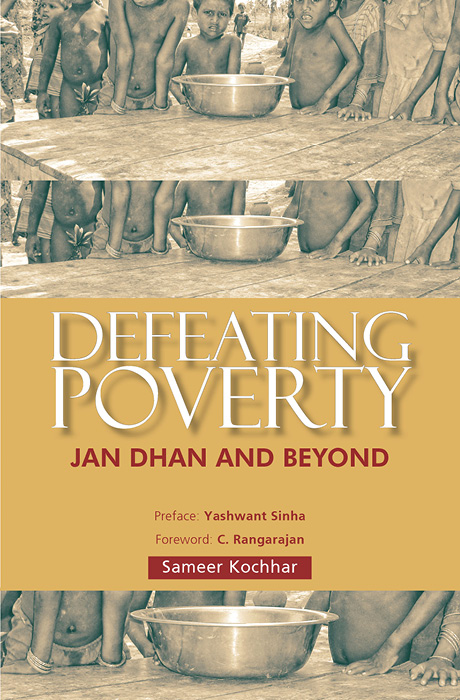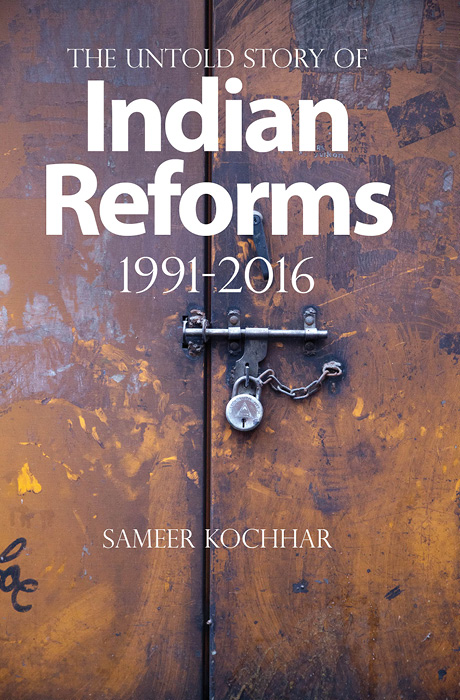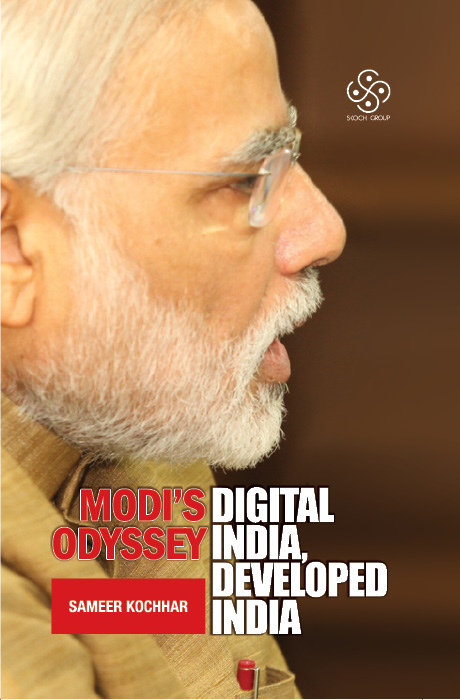Building from the Bottom: Infrastructure and Poverty Alleviation
Author: Sameer Kochhar
Pages: 320
ISSN: 978-81-7188-841-2
Language: English
Edition: First
Pub. Year: 2010
Putting the right infrastructure is critical to India’s plans for inclusive growth. Increasingly, responsibilities for infrastructure development will be decentralised to the local governments, whether rural or urban. There is now an increasingly urgent need for large-scale environmental improvement programmes and for strengthening governance and the capacity of local institutions to plan, implement, and finance infrastructure provision and service delivery.
Building from the Bottom: Infrastructure and Poverty Alleviation provides critical insights into infrastructure governance from different angles—policy making, urban and rural aspects, technology, connectivity, capacity building and participation. Some of the most distinguished scholars and practitioners have contributed to this volume that encapsulates the key issues in mainstreaming poverty alleviation strategies in infrastructure programmes. Some important questions it seeks to answer are: How can we ensure infrastructure access and affordability for the poor? What are the implications for development planning and decision-making processes? What are the financing options? The book also contains a number of best practice case studies to reflect community participation, innovation and commitment, all vital ingredients to the process of building from the bottom.
The book will serve as a useful reference and planning tool for administrators, planners, policymakers and researchers of development economics.
About the Editors/Contributors
Foreword
Introduction
I – Policy
1. The Power of Identity — Nandan Nilekani
2. Planning for Future Cities — M. Ramachandran
3. PURA and Urbanisation of India — P.V. Indiresan
4. On Strategies for Disinvestment and Privatisation — Vijay Kelkar
II – Infrastructure
5. Driving Infrastructural Development through Public-Private Partnerships — Hari Sankaran
6. Market-based Financing of Urban Infrastructure in India — Chetan Vaidya and Hitesh Vaidya
7. Genesis of the Problem of Infrastructure Financing and its Resolution — S.S. Tarapore
8. Fiscal Decentralisation and Financial Sustainability for Urban Infrastructure — K.K. Pandey
III – Governance and Service Delivery
9. The KDMC and MCGM Success Stories: Efficient Citizen Services Delivery Systems using e-Governance — Sameer Kochhar and Gursharan Dhanjal
10. e-Village, Global Village: Gujarat Shows the Way — Sameer Kochhar and Gursharan Dhanjal
IV – Poverty Alleviation
11. Programmes for the Urban Poor — N.C. Saxena
12. Demographic Dividend or Debt? — Nitin Desai
13. Working towards an Urban India — Bibek Debroy
14. Expanding the Umbrella: Financial Inclusion for the Urban Poor — Naveen Surya
Case Studies
1. Excellence in Solid Waste Management and Sanitation through Citizen’s Participation: Greater Visakhapatnam – Municipal Corporation
2. Excellence in Road Development through Citizens’ Participation — Indore Municipal Corporation: Completed and continuous process of implementation
3. Recycling Waste: A Venture — The Rajkot Municipal Corporation’s waste processing project has proved to be a great hit
4. Linking Water Supply with Property: Pune Municipal Corporation’s user-friendly system has led to an appreciable increase in revenue
5. Cleaning the Slums: The Dattak Vasti Yojana in Mumbai has gone a long way in improving sanitation in the city slums 291
6. Using GIS for Bill Collection: Varanasi Nagar Nigam has made life easy for citizens by introducing GIS-based tax assessment and collection
7. Easing Traffic Bottleneck: The Traffic Improvement Scheme by the Thane Municipal Corporation near the railway station has removed the congestion and improved travelling time
8. RIDCOR: The Road to Success
9. Ensuring Quality Water: Karnataka’s Kundapura Town Municipal Council embarked on an innovative civic services delivery project to improve water supply in the town
10. Urban Water Management towards Water Quality Monitoring System and Operation and Maintenance Practices for Improved Quality Life: Surat Municipal Corporation
11. Showing the Way: The community and Kalyani Municipality worked hand-in-hand to make Kalyani the first open defecation free (ODF) place in the country
Sameer Kochhar is President of Skoch Development Foundation, which is a leading think tank on digital, social and financial inclusion issues in India. He has been passionately working towards promoting participatory democracy, empowerment, and bringing improvements in delivery systems. He is CEO, Skoch Consultancy Services, and is an industry veteran with a multifaceted career spanning over two and a half decades. He is India strategy and management consultant to several Fortune 500 as well as large Indian companies for over a decade. He is also Chief Editor of Inclusion — a quarterly publication focused on development economics issues. He is considered to be one of the most respected independent voices on inclusive development and citizenship issues in India. He is a member of several expert groups and committees and his research opinion and writings have shaped many a public policy dialogue. He has published several widely acclaimed books, namely Infrastructure and Governance (2008); Financial Inclusion (2009); Urban Renewal: Policy and Response (2009); Speeding Financial Inclusion (2009 and India on the Growth Turnpike: Essays in Honour of Vijay L. Kelkar (2010).
M. Ramachandran, Ph.D. and M.Phil. in economic planning from University of Glasgow, UK, is Secretary, Ministry of Urban Development, Government of India. Member of the Indian Administrative Service since 1972, Dr. Ramachandran has handled several national and international assignments. He was First National Officer selected to be on deputation to United Nations Develop-ment Programme (UNDP), India during 1986-1992. He was Principal Secretary, School Education in Uttaranchal and Principal Secretary to the Chief Minister before eleva-ting to the position of Chief Secretary. He was identified as the “Infrastructure Man” in the state of Uttaranchal where he took several new initiatives covering public-private partnership projects. As Secretary, MoUD, since November 2006, he is steering the implementation of JNNURM. He is a recipient of Skoch Challenger Award recognising his contribution to urban development and JNNURM. He has recently authored two widely acclaimed books: An Alternative Approach to Project Planning in Public Works: The Indian Context (2009), and Urban Renewal and Policy Response (2009; edited by Sameer Kochhar).
Bibek Debroy is Distinguished Fellow, Skoch Development Foundation, an economist and currently Research Professor, Centre for Policy Research, and Contributing Editor, Indian Express group. He has worked in teaching and research institutes, for the government, and an industry chamber. He is the author of several popular articles, papers and books. His interests include law reform and Indology.
Nitin Desai, a graduate of London School of Economics (LSE), taught economics at two U.K. universities, worked briefly in the private sector, had a long stint as a government official in India and then joined the UN in 1990. In India, he joined the Planning Commission in 1973, and worked there till 1988. Later he joined the Ministry of Finance as the Chief Economic Advisor (1988-1990). In the UN, which he joined in 1990, he was Under-Secretary-General for Economic and Social Affairs. After his retirement, he has been involved in a variety of public policy activities nationally and internationally. He is a member of the National Security Advisory Board and the Prime Minister’s Council on Climate Change. He is a Distinguished Fellow of TERI and an Honorary Fellow of the LSE. He writes a monthly column in the Business Standard.
Gursharan Dhanjal, M.A., M.Phil., Ph.D. from Delhi University and an expert in strategic affairs, is Editor & COO, Skoch Consultancy Services. He is the Editor of Inclusion—a quarterly publication that focuses on development and inclusive growth issues. He has over 20 years of working experience ranging from academics to research and business journalism to consulting. He started his career as a Lecturer and taught at Delhi University for five years before joining Asia Business News (India)–Dow Jones, a premier broadcaster of business and financial news during mid-90s. He also worked for CNBC for over two years during the late-90s. He has led various research projects and field studies in financial inclusion, e-Governance and ICT for development that included traversing across the country collecting citizen voices for over eight years now. He also leads the video case study projects. His areas of expertise include research, and rich media content. A prolific writer, Dr. Dhanjal has contributed over 200 columns in leading national dailies, research papers in several journals of repute and authored a widely acclaimed book entitled: Tarapur: The Politics of Nuclear Age. He has recently published another book in association with Sameer Kochhar entitled Infrastructure and Governance. He has contributed chapters in various books and is a regular speaker at various public fora and institutions including IIT-Delhi and Delhi University where he is also a visiting faculty. He is also Member, Course Preparation Team, School of Social Sciences, Indira Gandhi National Open University.
P.V. Indiresan taught in the IIT system for 40 years and was Director, IIT Madras. He was awarded the top prize of the Inventions Promotion Board, Government of India twice. He has been President of the Institution of Electronics and Telecommunication Engineers and of the Indian National Academy of Engineering. He has been awarded the Lifetime Achievement Award by the Indian Institute of Science and an Honorary D.Sc. by the Karnataka Technical University as well as the rare distinction of being made the Honorary Member by the Institute of Electronics and Electrical Engineers, USA. He was also awarded the Padma Bhushan by the President of India. Prof. Indiresan has published two books, Managing Development: Decentralisation, Geographical Socialism and Urban Replication (1990) and, Vision 2020: What India can be and how to make it happen. He has chapters in over 30 books and is also a regular contributor to newspapers, and has a bi-weekly column Vision 2020 in the national daily—Hindu Business Line.
Vijay L. Kelkar is an economist and academic, who is currently the Chairman of the Forum of Federations, Ottawa and India Development Foundation, New Delhi and Chairman of the 13th Finance Commission (January 2010). He was earlier Advisor to the Minister of Finance (2002-2004), and is known for his role in economic reforms in India. Prior to this, he remained Finance Secretary and Petroleum Secretary, Government of India. In 1999, he was nominated as Executive Director of India, Bangladesh, Bhutan and Sri Lanka on the board of the International Monetary Fund (IMF). His contribution to fiscal policy reforms, tax reforms and petroleum sector reforms has had a far-reaching impact on the macro reforms process and growth of the country. He was recently conferred the Skoch Challenger Award for Lifetime Achievement in recognition of his contributions leading to reform and growth acceleration. His writings provide an insight into some current and critical macroeconomic and finance issues. These cover a broad set of topics, among them fiscal, monetary and external sector policies, drivers of economic growth, infrastructure, financial inclusion and education.
Nandan Nilekani is currently the Chairman of the Unique Identification Authority of India (UIDAI) in the rank and status of a Cabinet Minister, Government of India. He was most recently the co-chairman of the Board of Directors of Infosys Technologies Limited, which he co-founded in 1981. Serving as director on the company’s board since its inception till July 2009, he has held various posts at Infosys, including Chief Executive Officer and Managing Director, President, and Chief Operating Officer. Nilekani co-founded India’s National Association of Software and Service Companies (NASSCOM) as well as the Bangalore chapter of The IndUS Entrepreneurs (TiE). He is a member of the board of governors of the Indian Council for Research on International Economic Relations (ICRIER) and President of National Council of Applied Economic Research (NCAER). He was awarded one of India’s highest civilian honours, the Padma Bhushan, in 2006. In 2006, he was also named Businessman of the Year by Forbes Asia. Time magazine listed him as one of the 100 most influential people in the world in 2006 and 2009.
K.K. Pandey is currently holding the position of Chairperson of Centre for Urban Studies at Indian Institute of Public Administration, New Delhi with his three decades of research and training experience on urban finance, public private partnerships on urban infrastructure, local government management and capacity building, urban housing, slum improvement, local economic development and leadership and management. Prof. Pandey holds a Ph.D in economics with specialisation on municipal fiscal instruments and also has P.G. Diploma from Institute of Housing and Urban Development Studies (IHS), Rotterdam, Advance Course on Urban Management from University of Birmingham, U.K., and internet-based course on municipal finance (UN-ESCAP). He also has been a member of UN Expert Committees on Leadership and Management (2002), Pro-poor PPP (2003), Integrated Water Management (2005), Gender and Urban Governance (2007) and Institutional Development for UN International Urban Training Centre (2009). He has also has been a member of committees set up by RBI (2006), NSSO (2007), XI Plan sub-group (2007) and high level Indian delegation UN HABITAT (2005) and team of professionals on Urban Housing and Habitat Policy (2007).
Hari Sankaran is the Managing Director and CEO of Infrastructure Leasing & Financial Services Limited (IL&FS). After completing his Masters in Economics from the LSE, Sankaran developed a career in the areas of project finance, infrastructure development and management, regulation and public policy. His primary interest has been to understand the relationship between communities, infrastructure development and economic growth. He was recently conferred the Skoch Challenger Award for his contributions to education sector and infrastructure development.
N.C. Saxena, Member, National Advisory Council is Distinguished Fellow, Skoch Development Foundation, New Delhi. A Rockefeller Foundation Fellow, he obtained his Ph.D. from University of Oxford, U.K. He specialises in rural development, natural resource management, rural livelihoods, poverty alleviation, watershed and drinking water, governance, decentralisation and people’s participation. A member of Indian Administrative Service (IAS), Dr. Saxena recently retired as Secretary, Planning Commission, Government of India. He was earlier, Secretary, Rural Development, Government of India, and was Director, Lal Bahadur Shastri National Academy of Administration, Musoorie. Author of repute, he has contributed several research papers to various international journals, and has written several widely acclaimed books. He is currently engaged as Consultant with UNICEF, World Bank, UNDP, European Union, GTZ, ADB and DFID, working on projects ranging from village planning, evaluation of urban poverty programmes, reforms in public distribution system, water and sanitation, land management and so on.
Naveen Surya, Managing Director, ItzCash Card Limited has been one of the guiding forces in the conception of Intrex India. He brings with him over nine years of global exposure and the latest in management and business practices from his stint with several domestic and international firms. Prior to joining Intrex India, Surya was associated with TCS for four years where he worked on various projects for organisations and institutions including Director General Shipping (India), ACC, GE Capital (U.K.) and UBS (Japan). An innovative thinker driven by clarity of vision, he believes in the maxim “Keep things simple for the customer”. Under his stewardship, ItzCash is today one of the only “Multi Purpose Prepaid Cash Card” and the leader in this sector offering a portfolio of customised e-commerce and m-commerce solutions in the B2B and B2C space. He is an associate member of the ICSI (CS). After completing his L.L.B, he did his MBA (Finance) from Mumbai University.
S.S. Tarapore, Distinguished Fellow, Skoch Development Foundation, has a B.A. (Economics) from Sheffield University (1958) and M.Sc. (Economics) from London University (1960). He was awarded the degree of Doctor of Laws honoris causa from Sheffield University (1996). He joined the Reserve Bank of India in 1961 as Research Officer, and retired in 1996 as Deputy Governor. He was on deputation from 1971-1979, first in the IMF Research Department and subsequently under the IMF Central Banking Service with the Bank of Mauritius as Advisor to the Governor. He has chaired a number of official committees including the Committee on Capital Account Convertibility (1997), the Unit Trust of India Inquiry (2001), the Committee on Procedures and Performance Audit of Public Services (2004-05) and the Committee on Fuller Capital Account Convertibility (2006). He was a member of the Committee on Banking Sector Reforms (1998) and the Advisory Group on Transparency of Monetary Policy (2000).
Chetan Vaidya is the Director of National Institute of Urban Affairs (NIUA) since February 2008. He has over 30 years of experience in urban planning, finance and management. He is working very closely with the MoUD, Government of India on various urban issues and assisting various city and state governments in implementating reforms under the JNNURM. Prof. Vaidya is coordinating a large number of urban studies including City Cluster Economic Development in National Capital Region of Delhi, Sustainable City Form for India, Property Tax Reforms, etc. Prior to joining NIUA, he was working as Deputy Project Leader, Indo-USAID Financial Institutions Reform and Expansion (FIRE) Programme, and he extensively worked on the model municipal law, municipal bonds, municipal resource mobilisation and community-based toilet project.
Hitesh Vaidya is Senior Municipal Development Specialist at Indo-US (FIRE-D) Project. He has experience in the field of project management, financial management, local government finance and urban management. His primary responsibilities at the FIRE project are: programme management, which covers project identification, project documentation, and developing institutional arrangements. He provided technical assistance to the MoUD in finalising the National Mission Mode Project on e-Governance in Municipalities with the objective to facilitate decentralisation, transparency and introduction of accountability in the urban sector. He has also provided technical assistance and capacity-building support to several urban local bodies to institute significant financial, fiscal and management reforms, including improving tax collection, computerising records and strengthening financial management. These reforms laid the groundwork for cities to successfully implement urban infrastructure projects focusing on the poor, access to capital markets, and obtain private sector participation in the delivery of urban services.
